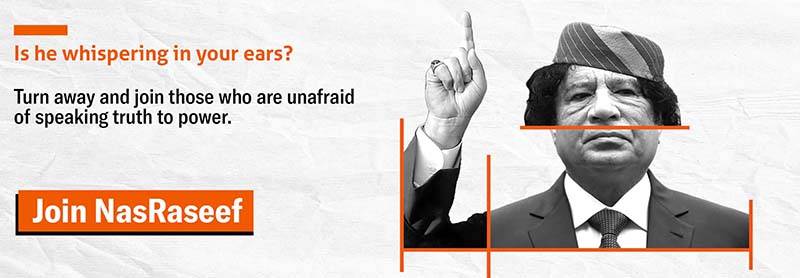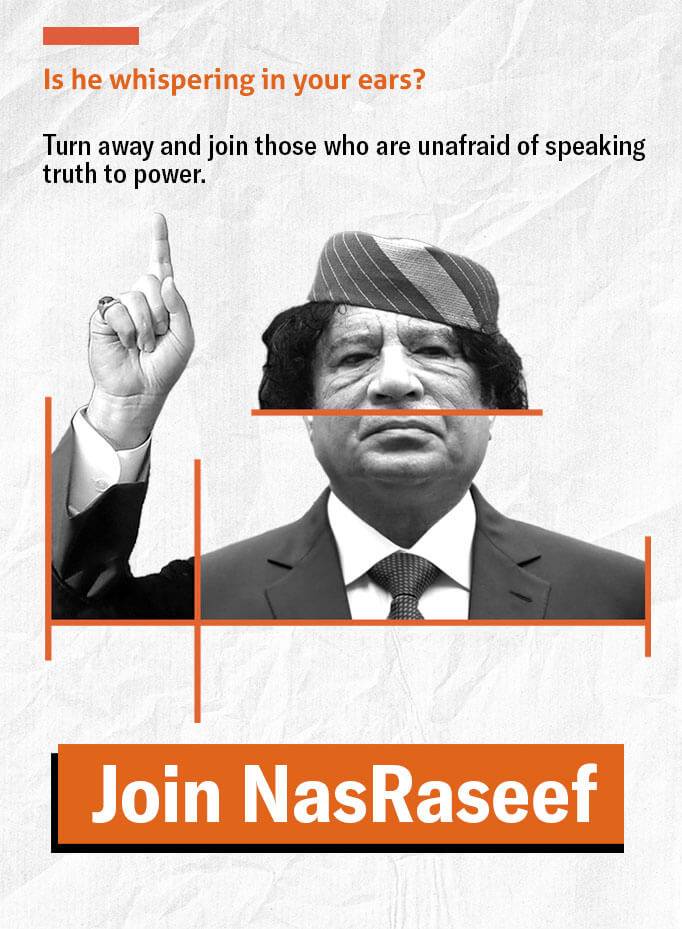It has been 17 years since she was “circumcised”, yet Egyptian feminist activist Shaimaa Tantawy who is now 27, has been unable to openly broach the repercussions of her experience. That is, until now. "I cannot even touch this area," she says. "For years, I, silently wondered if my husband would accuse me of being cold, or even if I would be accepted by any man. I questioned whether I was still fit for marriage." Eventually, she would grow up to become an outspoken activist against female genital mutilation (FGM), turning her own experience into a mission to put an end to what continues to happen to millions of other women. According to the UNICEF, Egypt is one of the top countries in terms of the number of FGM cases, registering a high record of 97% of ever-married women aged between 15 and 49. The UNICEF indicates that there are over 200 million women and girls have undergone FGM, in 30 countries, noting that half of these are located in just three countries, of which one is Egypt. There are also 3 million girls who face the risk of FGM every year in Africa alone. FGM was not criminalized internationally until the United Nations declared it so in May 2005, marking February 6 as International Day of Zero Tolerance for FGM. In 2008, Egypt passed a law criminalizing Female Genital Mutilation. In 2016, amid pressure from feminist organizations, the Egyptian parliament approved amendments to the Penal Code to introduce a definition of "female circumcision". Since then, FGM in Egypt has been defined as the partial or complete removal of external female genitalia, or otherwise causing injury to the organs without medical justification. This came on the back of dozens of girls losing their lives due to the consequences of the procedure across Egypt. Tantawy tells Raseef22 that a doctor performed FGM on her. "I was afraid to go to the bathroom because of the pain of urination," she says. At one point, when she did use the toilet, she found herself bleeding continuously. "I felt as though my heart had stopped. I panicked." Tantawy's physical wound had not healed from the incision, and she had to undergo a month of treatment. And though she eventually healed physically, she would have to live the remainder of her life with the psychological injury of knowing that part of her body and sexual identity is lost forever. About 74% of FGM procedures in Egypt are performed at the hands of doctors, on girls and young women under the age of 20. The figure increases to 82% once other health professionals are accounted for, such as nurses, according to the Demographic and Health Survey for Egypt in 2014. Journalist Rabab Azzam describes her experience with FGM as the worst incident of mass sexual assault that she has ever been exposed to. She considers FGM to be a form of psychological and social abuse, in addition to the physical aspect of the abuse, as the procedure was approved and witnessed by her family. "I cannot describe how ugly it was. I cannot even understand how my family allowed a strange man to see me naked and cut off a part of my body like a butcher, as they sat and watched," Azzam recently posted under an anti-FGM hashtag. She tells Raseef22 that a few years later, she convinced her family not to force her younger sister to undergo the same experience. At the time, she wondered why there was no law that allowed women to sue their families for the harm they caused them. [h2]Afraid of Sex[/h2] Heba, a media communications student who had the procedure performed on her at the age of eight, is still reminded of the incident, although she is now 20 years old. Growing into adulthood came in parallel with growing into her pain. Like many of her peers, Heba has anxieties over the prospect of marriage, and fears that she will be accused of being frigid. "I fear sex now," she says. “When I was just eight, my mother told me that a part of my genitals would increase in size when I got older, and that it would make it harder for me to walk or play sports or go about my life normally. A doctor from our village came with a device to cauterize this part. Not a drop of blood was spilled. I only felt a pinch and returned home walking,” Heba says. “As I grew older, I learned what FGM was, but until today, I’m not certain that this is what I went through. My mother is well educated and would not have put me through this. She is against FGM. For a long time, I believed she did not really understand what exactly happened. But when I spoke to a close friend, who is a doctor, he confirmed that this was indeed a circumcision." "I felt as though my mother had robbed me of a part of my life," she adds. Heba never said a word on the topic to her mother. Yet, she says that when she has children of her own, she will never leave them alone with her mother, as a form of punishment for what she did to her. [h2]Cut by a Barber[/h2] Soaad* is 26 and is now pursuing postgraduate studies in science in the US. She recalls her experience with FGM, and the hatred it generated towards her family, despite the ongoing therapy. When she was 16, Soaad was escorted by her mother and her aunt into a small wooden kiosk, still dressed in her pajamas. There, she underwent the brutal procedure, without anaesthetic. She remembers being told that the man would only perform a check up on her. “As I walked into the kiosk, I saw the old man with a barber's blade in his hand. Seconds later, I felt my flesh being cut. I screamed until I could scream no longer. I spent an entire month regularly bathing the wound in water and salt to try to calm the pain,” she says. “That piece of flesh that they had cut off of me was tied to my arm until my wound stopped bleeding. I never understood what happened to me until I was 20 years old, and I started experiencing health complications as a result of the procedure. My family refused to allow me to visit a gynecologist, as though that were the shameful act, but allowing a barber to cut off my genitals was not,” she continues. [h2]The Midwife’s Scalpel[/h2] Amal, 28, had a marginally less grueling experience with FGM. Though the midwife who performed the procedure actually attempted to intervene to help her, her family insisted on the procedure. “I was 11 years old, and my family was visiting their village in Upper Egypt. My mother told me I had some excess skin that needed to be removed, and though I refused out of fear, I was surprised to learn that a woman was coming the following day to circumcise me. My mother told me that they were just going to remove some dead skin to make me pretty, so I could wear trousers and so that it wouldn’t hurt me when I grew older.” “I asked if I would feel any pain, and I was told that I would be anaesthetized and wouldn’t feel a thing. Still, I could not sleep that night, and stayed up wondering what would happen,” she continues. In the morning, the midwife arrived. For a while, Amal begged to be left to be. She breathed a sigh of relief when the midwife told her mother that she was fine and did not need the procedure. But her mother insisted. She lay down and spread her legs. The midwife slowly approached her, and applied a topical anaesthetic on her genitals. “I tried several times to get up to see what was happening. I finally gave in and began reciting verses of the Quran. Suddenly, I felt a scream emerging from the pit of my stomach. I slept for some time, and when I woke up, I refused to let anyone into the room,” she recalls. It has been almost 17 years since Amal's experience, yet every time someone mentions the menstrual cycle, blood, or marriage, she is instantly reminded of the incident. She recalls a time when she was playing with one of her dolls, when she opened up the dog's legs, took out a box of matches, and found herself burning it between its legs, in the same area where she herself had been cut. 

Raseef22 is a not for profit entity. Our focus is on quality journalism. Every contribution to the NasRaseef membership goes directly towards journalism production. We stand independent, not accepting corporate sponsorships, sponsored content or political funding.
Support our mission to keep Raseef22 available to all readers by clicking here!




Join the Conversation
جيسيكا ملو فالنتاين -
1 day agoجميل جدا أن تقدر كل المشاعر لأنها جميعا مهمة. شكرا على هذا المقال المشبع بالعواطف. احببت جدا خط...
Tayma Shrit -
2 days agoمدينتي التي فارقتها منذ أكثر من 10 سنين، مختلفة وغريبة جداً عمّا كانت سابقاً، للأسف.
Anonymous user -
2 days agoفوزي رياض الشاذلي: هل هناك موقع إلكتروني أو صحيفة أو مجلة في الدول العربية لا تتطرق فيها يوميا...
Anonymous user -
2 days agoاهم نتيجة للرد الايراني الذي أعلنه قبل ساعات قبل حدوثه ، والذي كان لاينوي فيه احداث أضرار...
Samah Al Jundi-Pfaff -
4 days agoأرسل لك بعضا من الألفة من مدينة ألمانية صغيرة... تابعي الكتابة ونشر الألفة
Samah Al Jundi-Pfaff -
4 days agoاللاذقية وأسرارها وقصصها .... هل من مزيد؟ بالانتظار